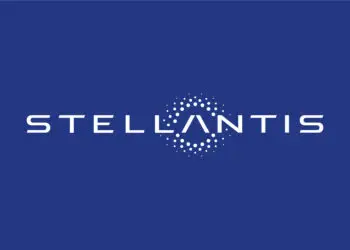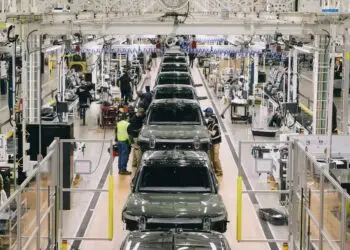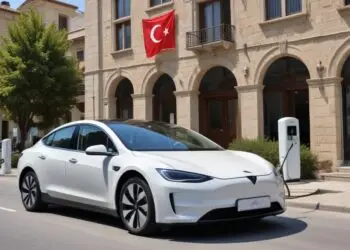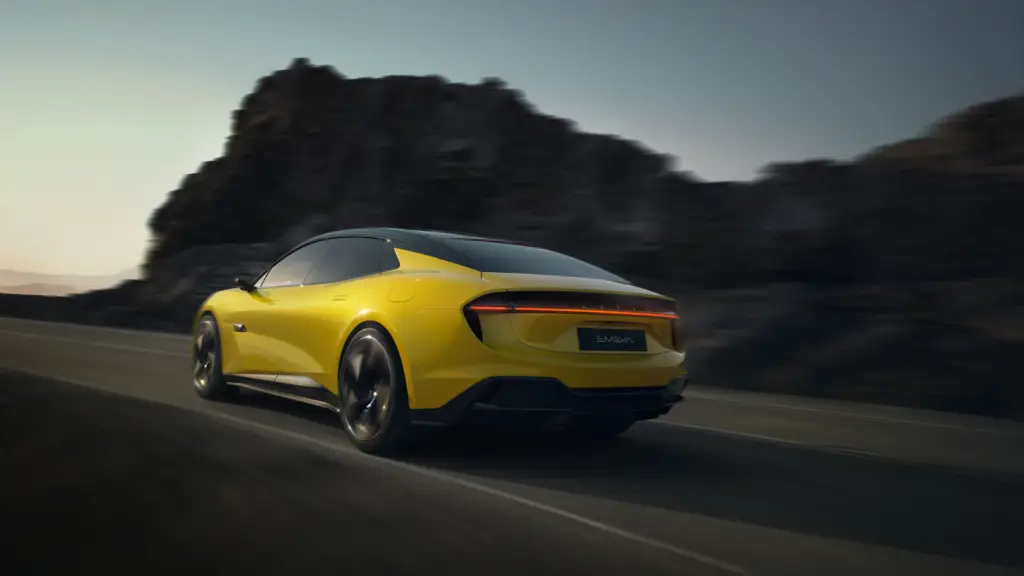U.S. President Joe Biden’s announcement on May 14, 2024, is a significant development in the escalating trade tensions between the world’s two largest economies. The announcement includes steep tariff increases on a wide range of Chinese imports, notably electric vehicles (EVs), solar cells, batteries, steel, aluminum, and other goods.
The Biden administration views this decision as a continuation and intensification of the trade policies initiated under the Trump administration, aiming to protect American industries from what it perceives as unfair competition fueled by Chinese government subsidies and other non-market practices.
Electric Vehicles and Solar Cells: A Focal Point
The most significant impact of the new tariffs is the 100% levy on Chinese-made electric vehicles, a substantial increase from the previous rate of 25%. While the immediate impact on the U.S. market may be symbolic due to the minimal presence of Chinese EVs, it reflects deep concerns within the American automotive industry about the potential for a flood of cheap Chinese electric vehicles.
The tariffs on solar cells will also see a significant hike, from 25% to 50%, amid accusations from the White House that China is dominating the global solar supply chain through unfair practices, thereby undermining investment in solar manufacturing outside of China.
Broader Implications and Industry Reactions
The announcement has sparked a range of reactions, underscoring the complexity and importance of the issue. While some sectors of the American industry, such as the Solar Energy Industries Association, commend the administration for actions intended to support the continued buildout of U.S. solar and storage manufacturing, others, like Colorado Governor Jared Polis, have criticized the tariffs as harmful to American consumers and a setback for clean energy. The United Auto Workers union has supported the tariffs, viewing them as essential for ensuring a just transition to electric vehicles.
Global and Domestic Political Context
The new tariffs come amid a broader context of escalating global trade tensions, particularly in the green technology sector, and reflect an ongoing strategic competition between the U.S. and China. Domestically, the move is part of Biden’s efforts to appeal to voters in key battleground states by protecting American jobs and industries. The administration has emphasized that these measures are targeted and do not anticipate causing inflation, contrasting them with the broader tariffs proposed by former President Trump.
China’s Response and Future Prospects
In response to the announcement, Chinese officials have promised retaliation, accusing the U.S. of protectionism and vowing to defend their rights and interests. The long-term impact of these tariffs on the US-China trade relationship, global supply chains, and the broader economy remains uncertain. Analysts suggest that while the immediate economic effects may be limited, the tariffs could have significant implications for the future of global trade in green technologies and the ongoing economic rivalry between the U.S. and China.
As the situation develops, all eyes will be on the potential for further escalation, the response from other global players, especially in Europe, and the impact on the Biden administration’s broader economic and environmental agenda.
Evoltronic’s Take:
Evoltronic provides insights and analytical research in the electric vehicle and autonomous vehicle industries. We closely monitor developments that impact the global market landscape. The recent tariff increases on Chinese EVs and related technologies represent a significant shift in trade policy with far-reaching implications for the industry.
Market Impact:
The immediate impact on the U.S. market may be limited due to the low volume of Chinese EV imports, but the long-term effects could be substantial. The tariffs will likely accelerate the shift of Chinese production to other countries, such as Mexico, to circumvent the tariffs, potentially altering global supply chains.
Three Chinese E.V. companies, Foton, JAC Motors, and Shacma have already established assembly plants in Mexico – BYD has also confirmed plans to open a factory in Mexico with an annual production capacity of 150,000 vehicles.
According to an Alliance for American Manufacturing report, few more Chinese automakers could gain backdoor access to American consumers by circumventing existing policies through production in Mexico. The report warns of an “extinction-level event” for U.S. automakers if low-cost Chinese EVs flood the market.
Strategic Opportunities:
While presenting challenges, the tariffs also open up strategic opportunities for U.S. manufacturers to strengthen their position in the E.V. market. By investing in domestic production and innovation, companies can adapt to the new trade environment and leverage government incentives. This positions them to lead in the emerging green technology sector, instilling a sense of optimism for the future.
The Inflation Reduction Act offers tax credits of up to $7,500 for EVs assembled in North America, incentivizing domestic production. Since President Biden took office, the U.S. government has also announced investments of over $100 billion in E.V.s, batteries, and chargers.
Challenges and Risks:
The increased costs associated with the tariffs pose significant challenges for U.S. consumers and manufacturers. This could potentially slow the adoption of EVs and other clean technologies, a concern that stakeholders must be aware of and strategically navigate to maintain momentum in transitioning to a sustainable energy future.
This decision, part of a broader strategy to counter China’s growing economic influence, has far-reaching implications for the global electric vehicle and renewable energy markets.










